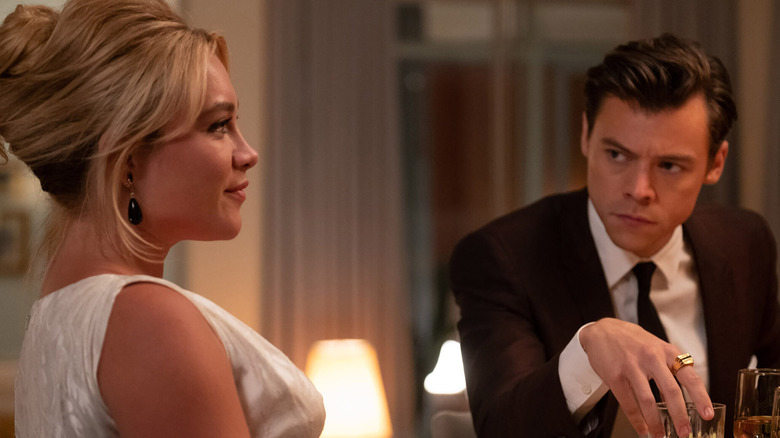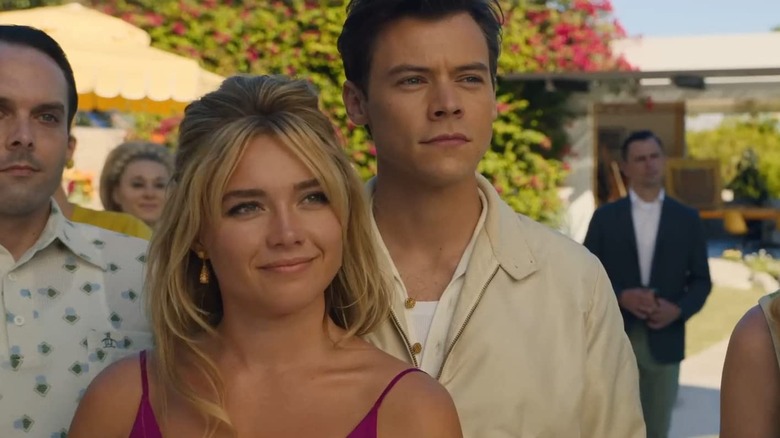Don't Worry Darling Is Generating A Whole New Wave Of Buzz Thanks To Netflix
Before Olivia Wilde's psychological thriller "Don't Worry Darling" had even hit theaters, it had already stirred up a lot of buzz — and controversy. The rumors and gossip surrounding the film have long since died down, but its move to streaming on Netflix has kicked up a new cloud of conversation.
First, a quick rundown of the drama that was discussed more than the movie itself in its run-up to release. While "Don't Worry Darling" was still in production, the world learned that Wilde had ended her engagement to Jason Sudeikis and entered a relationship with the star of the movie, globally renowned singer and heartthrob Harry Styles. The relationship between Wilde and Styles was seen by some as a violation of on-set power dynamics, and given its proximity to her engagement to Sudeikis, it also looked like the relationship may have begun as an illicit affair.
As if the on-set romance wasn't controversial enough, additional rumors circulated that Styles' co-star Florence Pugh had taken issue with his casting. These were fueled by Pugh being absent from the Q&A panel at the Venice premiere for "Don't Worry Darling," and doing little to promote the film otherwise. She even publicly spoke out against the audience's response to the trailer, which (predictably) centered heavily around her sex scenes with her world-famous co-star. "When it's reduced to your sex scenes, or to watch the most famous man in the world go down on someone, it's not why we do it. It's not why I'm in this industry," Pugh explained to Harper's Bazaar.
"Don't Worry Darling" only just about broke even at the box office last year, but it's made it into Netflix's top 10 most-watched films in the United States after landing on September 4, per FlixPatrol. So, behind-the-scenes drama aside, is it worth a watch?
Netflix and Chill, Darling
After all the buzz leading up to the premiere, "Don't Worry Darling" had a pretty lackluster critical reception. /Film's own review concluded that, despite a decent start, it "can't overcome its rather simplistic story and a disappointing reveal that ultimately doesn't match up to its build-up." So how did a film with such an accomplished cast and a promising premise falter so dramatically?
For one thing, the buzz may have built up certain expectations for the film that either tainted the audience's expectations or gave the premise very big shoes to fill. The sci-fi set-up presented a perfectly good allegory but failed to interrogate its themes particularly deeply or to piece things together in a satisfying way. Major events like a plane falling out of the sky and Pugh's character having a vision of being crushed in the closing space between a wall and a window aren't explained in detail, but rather incorporated into a larger explanation of the sinister hidden reality behind this utopian universe.
But the negative reviews and tabloid gossip haven't stopped new viewers from discovering the film in droves now that it's made its way to Netflix. This new boost in viewership just goes to show that an initial critical or commercial flop doesn't have to be the final verdict for a movie; streaming has given "Don't Worry Darling" a shot at a second life.

